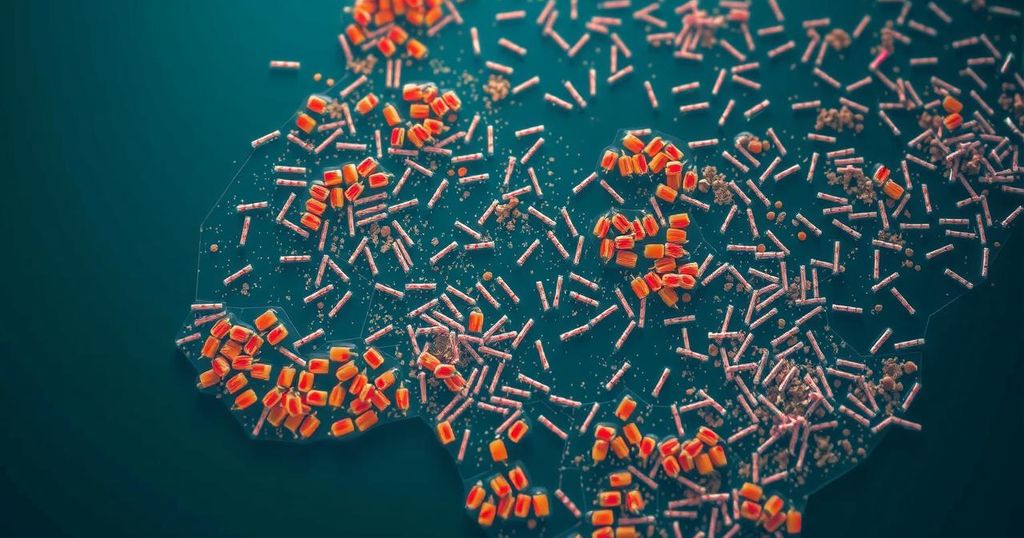IRC Raises Alarm over Cholera Surge in Flood-Affected Nigeria and Niger

The IRC has reported a concerning increase in cholera cases and fatalities in Nigeria and Niger due to severe flooding in 2024, urging immediate resource allocation for intervention. Nigeria has experienced a 239% rise in cholera deaths, while Niger has reported 881 cholera cases and 18 fatalities. The IRC is expanding its healthcare efforts, establishing cholera treatment units, and addressing the extensive humanitarian needs.
The International Rescue Committee (IRC) has raised alarms regarding a significant surge in cholera cases in Nigeria and Niger, directly linked to the recent severe flooding in the regions. The year-on-year cholera fatalities in Nigeria have skyrocketed by 239%, with the Nigerian Public Health Agency reporting a total of 359 deaths thus far in 2024. In Borno State, the IRC’s cholera treatment unit at the Gubio Internally Displaced Persons (IDP) camp is currently at full capacity. Meanwhile, Niger has witnessed 881 cholera cases and 18 fatalities amidst ongoing floods that have left over 1 million individuals in dire need of assistance. The IRC has been actively responding to these alarming health crises, focusing on expanding healthcare and sanitation initiatives to mitigate further risks. The severe weather conditions that swept through West Africa in 2024 have exacerbated existing humanitarian challenges, affecting over 1.4 million people in Niger alone. Recent floods almost tripled the number of individuals impacted compared to the previous flood events in 2020, creating an urgent need for comprehensive humanitarian assistance. In addition to healthcare provisions, the IRC is working in concert with local authorities to ensure access to shelter, cash aid, and essential medical care. In response to the cholera outbreak, the IRC is implementing preventive measures such as establishing oral rehydration points in flood-affected areas, particularly in IDP camps, to provide immediate treatment for acute watery diarrhea. IRC teams are actively engaging with local communities to identify potential cholera cases and are proactively preparing for a possible escalation of the outbreak by stockpiling vital medical supplies and rehydration fluids. The leadership of the IRC has stressed the urgency of the situation, emphasizing the critical lack of resources needed to safeguard public health during these floods. IRC Niger Country Director, Melody Munz, highlighted the unprecedented scale of these floods, stating that without urgent intervention, the risk to vulnerable populations will increase. Similarly, Babatunde Ojei, IRC Nigeria Country Director, reiterated the immediate need for collaboration among stakeholders to curb the outbreak and prevent further loss of life.
In 2024, heavy rainfall and severe flooding in West Africa have compounded existing humanitarian crises and have led to a drastic increase in cholera cases. Cholera, a highly contagious and waterborne disease, poses a severe public health threat in communities lacking access to clean water and proper sanitation, particularly in the aftermath of natural disasters. The IRC is actively involved in mitigating the effects of the flooding by providing critical health services and addressing the urgent needs of affected populations, specifically in Nigeria and Niger, which have recorded alarming rates of cholera-related fatalities in connection with ongoing flooding emergencies.
The IRC has underscored the pressing need for enhanced resources and collaboration among international and local partners to effectively manage the cholera outbreak and protect vulnerable communities impacted by the recent floods. As cholera thrives in conditions of overcrowding and inadequate sanitation, the IRC is committed to scaling up its efforts on the ground to provide immediate health assistance and prevent further disease spread. The crisis highlights the necessity of proactive climate adaptation strategies to prepare for future environmental challenges and their related health implications.
Original Source: www.rescue.org







